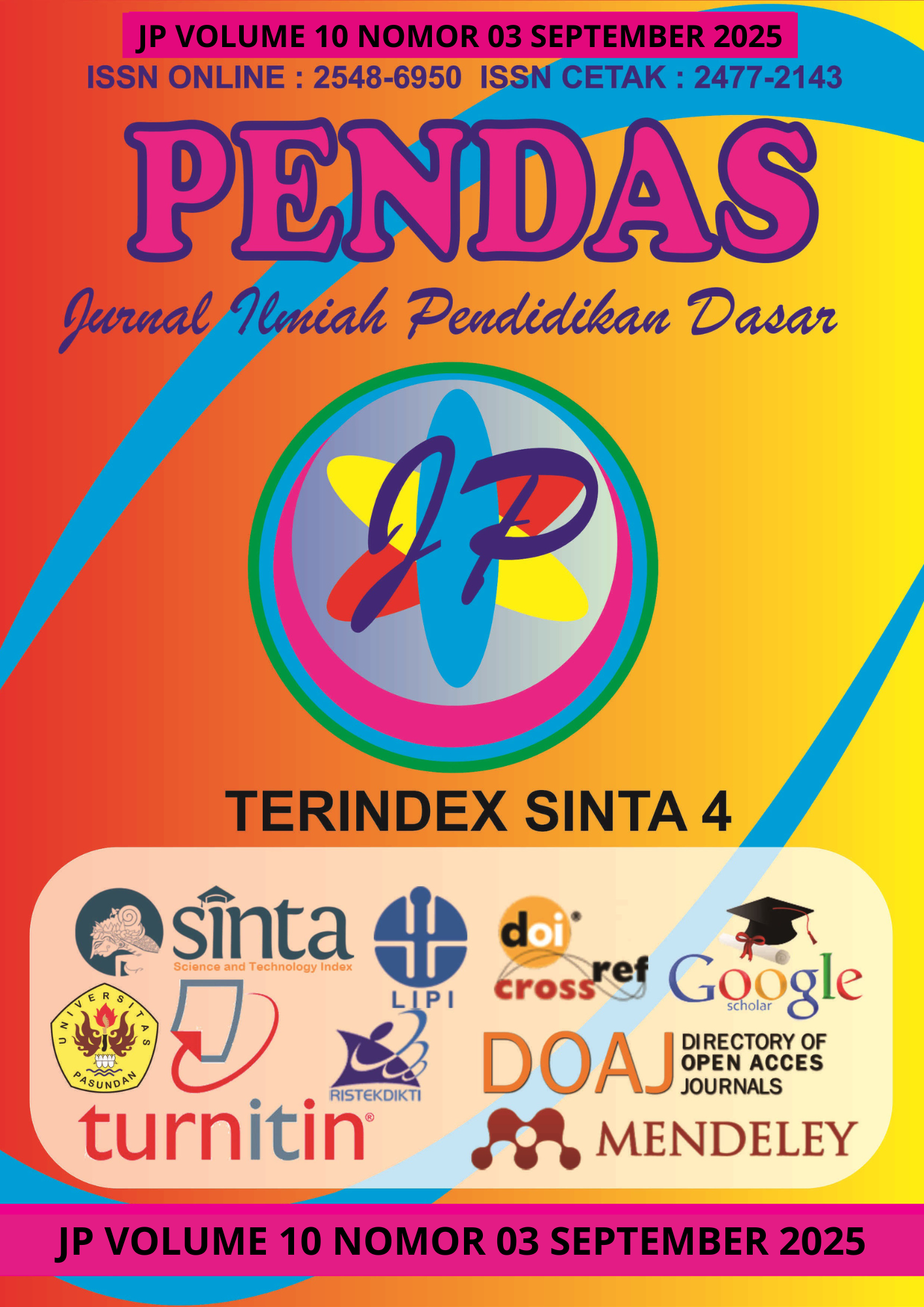PENGARUH PENDEKATAN KOLABORATIF LEARNING DALAM PEMBELAJARAN PENDIDIKAN AGAMA ISLAM (PAI) UNTUK MENINGKATKAN KOMPETENSI SPIRITUAL KETELADANAN PADA PESERTA DIDIK KELAS III SDN INPRES BAJO
DOI:
https://doi.org/10.23969/jp.v10i3.32961Keywords:
spiritual competence, Islamic religious education, collaborative learning, exemplary behaviorAbstract
This research discusses the influence of the Collaborative Learning approach in Islamic Religious Education to enhance spiritual competence and exemplary behavior among 3rd-grade students at SDN Inpres Bajo. The problem faced is the lack of effective learning methods to improve students' spiritual competence and exemplary behavior in the context of Islamic Religious Education. The aim of this research is to determine the influence of the Collaborative Learning approach in enhancing students' spiritual competence and exemplary behavior. The research methodology used is a quasi-experimental design with a pretest-posttest. The sample consists of 22 3rd-grade students at SDN Inpres Bajo. Research instruments include tests of spiritual competence and exemplary behavior, as well as observations of the learning process. The Collaborative Learning approach was applied in Islamic Religious Education emphasizing cooperation, communication, problem-solving, responsibility, and creativity. The results show that the Collaborative Learning approach has a significant influence on enhancing students' spiritual competence and exemplary behavior. The improvement is evident from the significant difference between pretest and posttest results. Observations of the learning process indicate that students are more active and engaged in learning with the Collaborative Learning approach. Thus, it can be concluded that the Collaborative Learning approach is effective in enhancing the spiritual competence and exemplary behavior of 3rd-grade students at SDN Inpres Bajo in Islamic Religious Education.
Downloads
References
Akmawil. (2022). Pendidikan Agama Islam Di Sekolah Dasar. Jakarta: Prenadamedia Group.
Aziz, A. A., et al. (2021). Pembelajaran Pendidikan Agama Islam (PAI) di Sekolah Dasar. Jurnal Penelitian Pendidikan Islam, 9(1), 63–80. https://doi.org/10.36667/jppi.v9i1.542
Dewi, N., Hidayat, A., & Pratama, R. (2020). Kepemimpinan mahasiswa dalam membangun pendidikan karakter. Jurnal Pendidikan, 15(2), 101–112.
Ghozali, I. (2021). Aplikasi analisis multivariate dengan program IBM SPSS 25. Semarang: Badan Penerbit Universitas Diponegoro.
Hasan, H. (2020). Pendidikan sejarah dan pembangunan karakter bangsa. Bandung: Remaja Rosdakarya.
Ibrahim, M., Sari, R., & Putra, A. (2020). Metode penelitian pendidikan: Pendekatan eksperimen dan kuasi eksperimen. Jakarta: Rajawali Pers.
Juliansyah, N. (2021). Metodologi penelitian kuantitatif. Jakarta: Kencana.
Margono, S. (2020). Metodologi penelitian pendidikan. Jakarta: Rineka Cipta.
Mustami, M. K. (2020). Instrumen penelitian pendidikan. Surabaya: CV Jakad Publishing.
Presiden Republik Indonesia. (2005). Peraturan Pemerintah Nomor 19 Tahun 2005 tentang Standar Nasional Pendidikan. Jakarta: Sekretariat Negara.
Priyatno, D. (2023). SPSS untuk analisis data penelitian. Yogyakarta: Andi Offset.
Rusman. (2022). Model-model pembelajaran: Mengembangkan profesionalisme guru. Jakarta: Rajawali Pers.
Sanjaya, W., & Muhaimin. (2022). Sistem pendidikan nasional: Perspektif kebijakan dan implementasi. Bandung: Alfabeta.
Winarni, E. (2021). Filsafat pendidikan dan pembelajaran. Malang: UM Press.
Syaiful, Zain. (2019) . Strategi belajar mengajar,. Jakarta:rineka cipta.
Trionto. (2018). Model-model pembelajaran inovatif berorientasi konstruktiviatik. Jakarta :kencana.
Downloads
Published
Issue
Section
License
Copyright (c) 2025 Pendas : Jurnal Ilmiah Pendidikan Dasar

This work is licensed under a Creative Commons Attribution 4.0 International License.



















